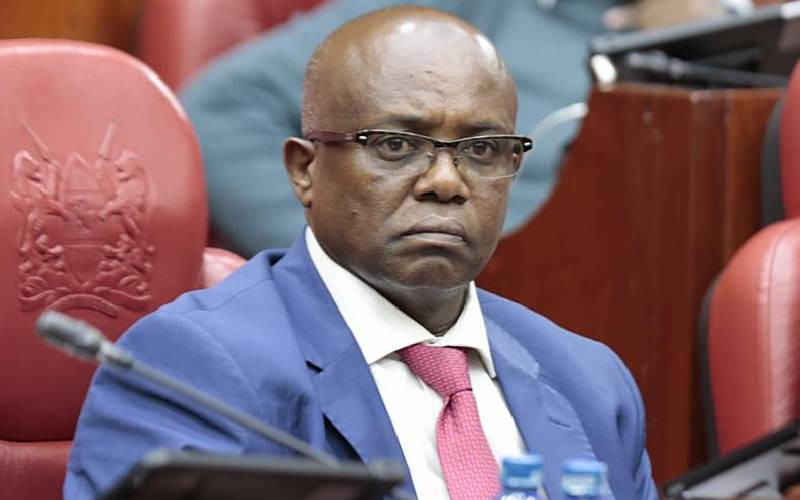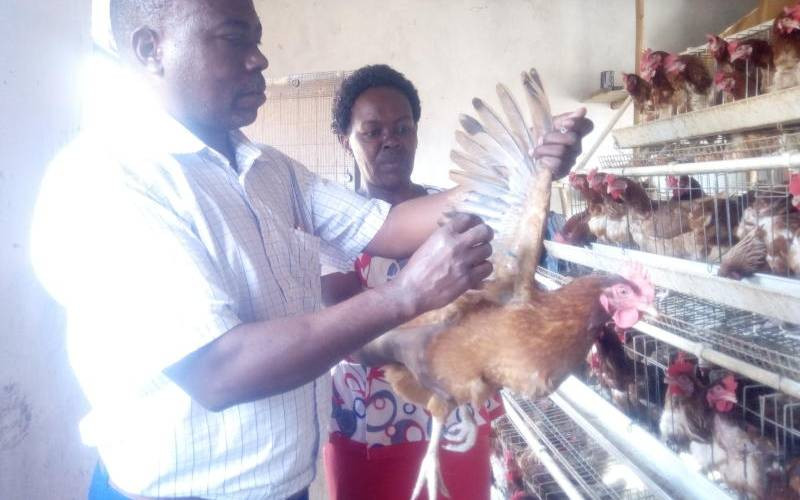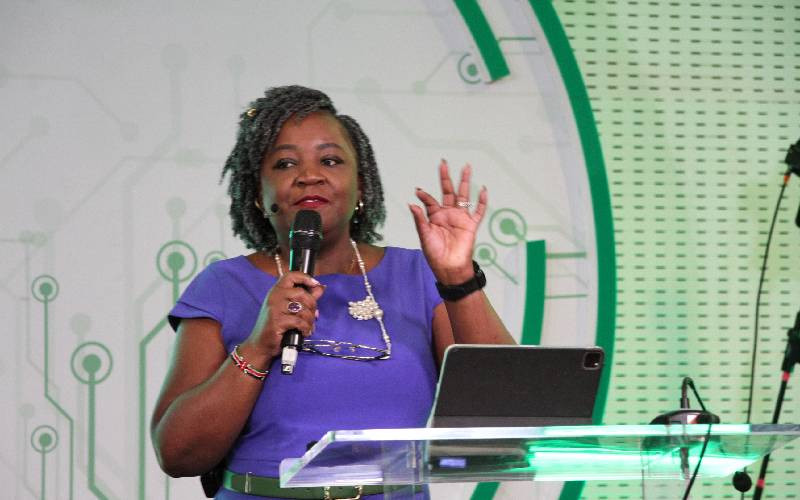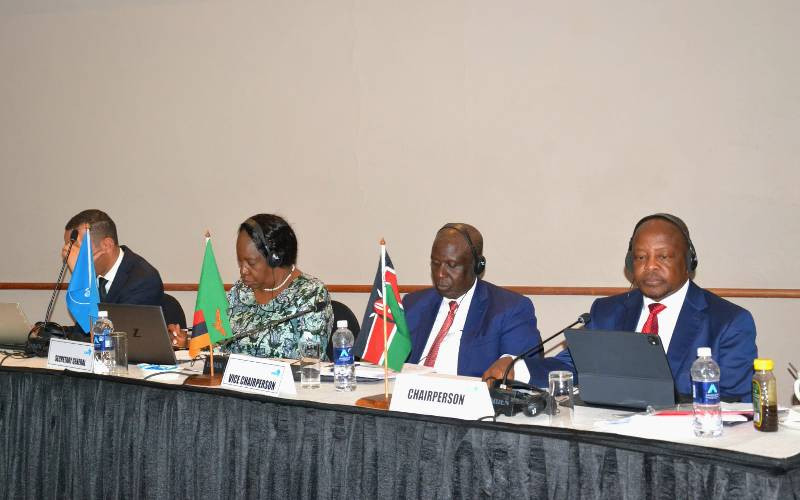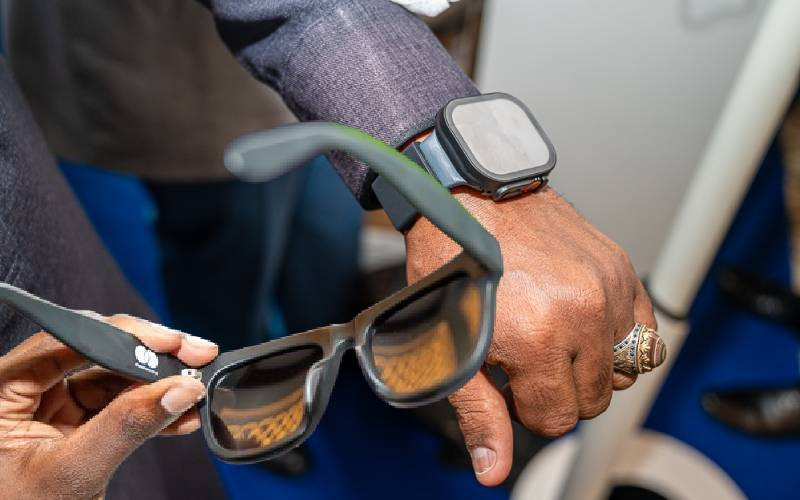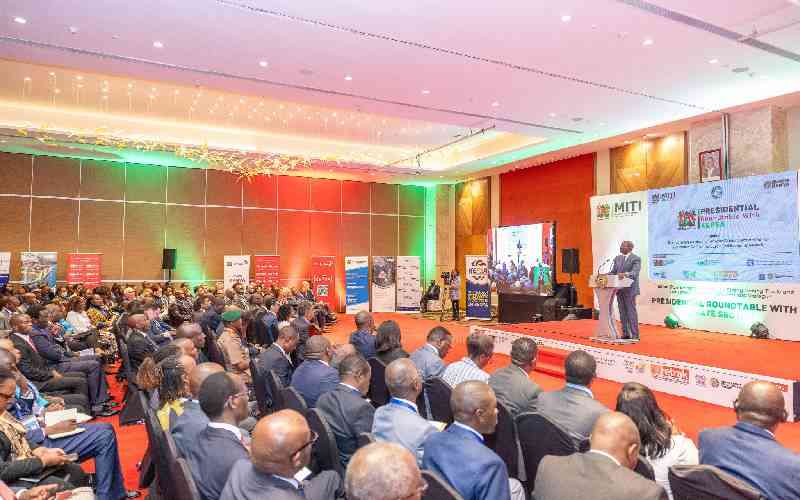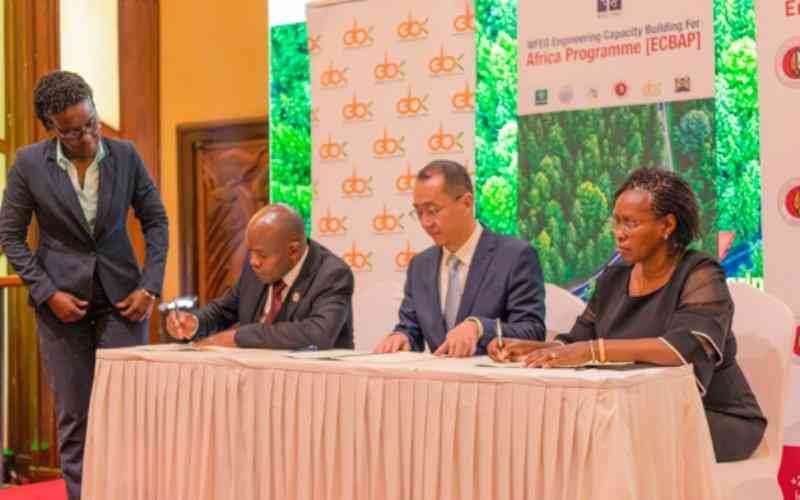
From right, Engineers Board of Kenya CEO Margaret Ogai, China Association for Science and Technology executive President Junke He and Institution of the Engineers of Kenya President Shammah Kiteme, during the signing of MoU. [Emmanuel Kipchumba]
A new initiative seeks to bridge Africa’s engineering skills gap by training 100,000 engineers across the continent.
The programme, launched in Nairobi, aims to equip engineers with expertise in artificial intelligence (AI), renewable energy, digital infrastructure and climate-resilient designs.
Speaking at the launch, Roads and Transport Cabinet Secretary Davis Chirchir, represented by Principal Secretary for Roads Joseph Mbugua, said the initiative would be instrumental in addressing Africa’s industrial and infrastructure needs.
"Africa cannot afford to lag in industrialisation and infrastructure growth. ECBAP will bridge the engineering skills gap and ensure that our engineers lead the continent’s transformation," said Chirchir.
The World Federation of Engineering Organizations (WFEO) has launched the Engineering Capacity Building for Africa Programme (ECBAP) in collaboration with the Institution of Engineers of Kenya (IEK), the Engineers Board of Kenya (EBK) and the China Association for Science and Technology (CAST).
WFEO President Mustafa Shehu said the initiative would not only train engineers but also promote research and innovation to address Africa’s infrastructure challenges.
"This programme will not only train engineers but also promote research and innovation to tackle Africa’s most pressing infrastructure challenges," said Shehu.
IEK President Shammah Kiteme said partnerships with global institutions would be crucial in ensuring African engineers remain competitive.
"The ECBAP initiative is a transformative step towards equipping engineers with the skills needed for Africa’s economic transformation. Through partnerships with global institutions, we will create a knowledge-driven workforce to lead infrastructure development," noted Kiteme.
EBK Chairman Erastus Mwongera highlighted the need for global accreditation, saying efforts were underway to secure Washington Accord recognition for Kenyan engineers.
"Kenya’s engineering education must align with international standards. We are actively working towards securing Washington Accord recognition, which will open doors for Kenyan engineers globally," said Mwongera.
CAST Executive President Junke He noted that China’s advancements in engineering could offer valuable insights for Africa’s growth.
"China has made significant strides in developing sustainable infrastructure. Through this partnership, we aim to share knowledge and expertise to help African engineers lead in solving local infrastructure challenges," said He.
The programme aligns with the United Nations Decade for Science and Technology for Sustainable Development (2024-2033) and supports Africa’s Agenda 2063 and the African Continental Free Trade Area (AfCFTA) by enhancing regional engineering mobility.
Stay informed. Subscribe to our newsletter
"Africa remains a continent of untapped potential. This programme enables African engineers to lead in providing homegrown solutions to our unique challenges," said Kiteme.
The ECBAP launch marks the beginning of a decade-long effort to build a skilled workforce capable of driving Africa’s infrastructure development.
